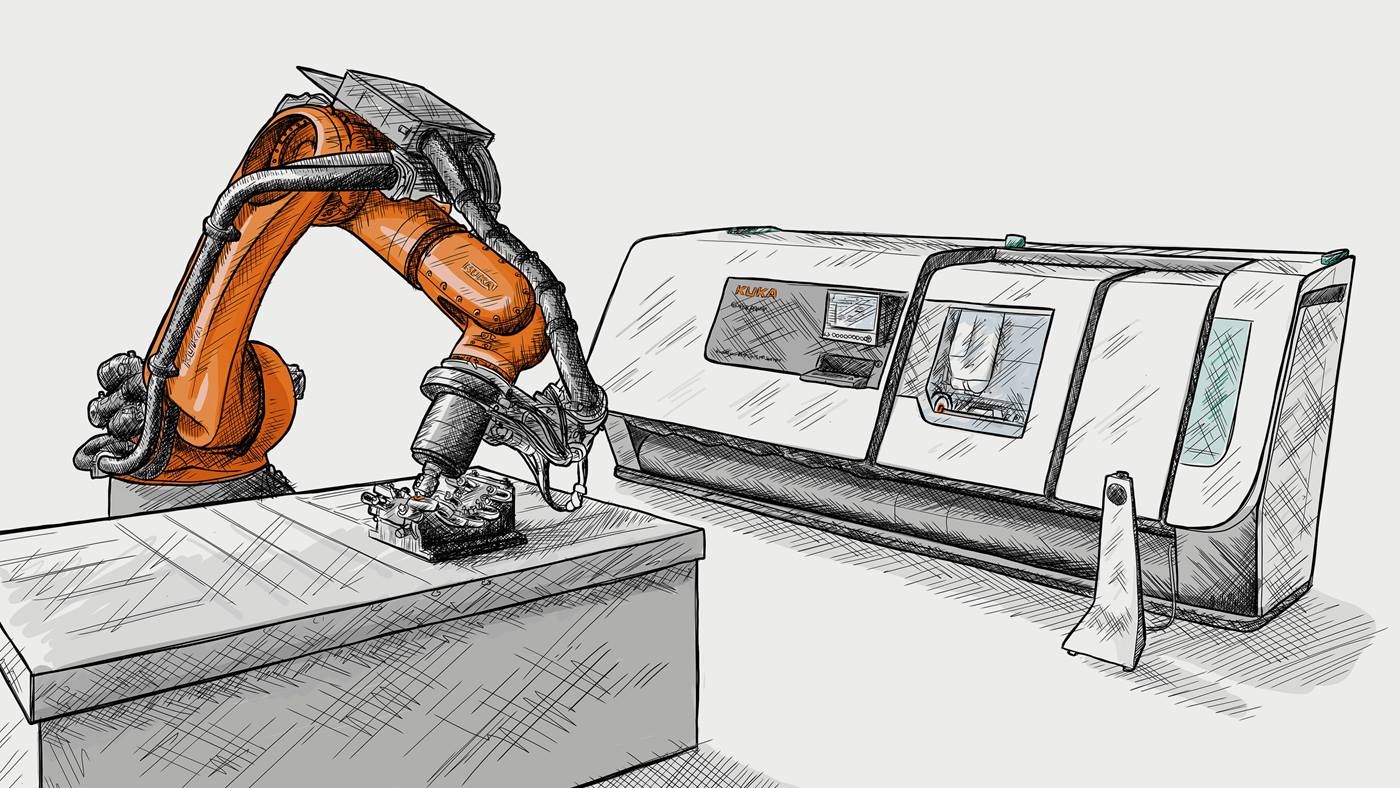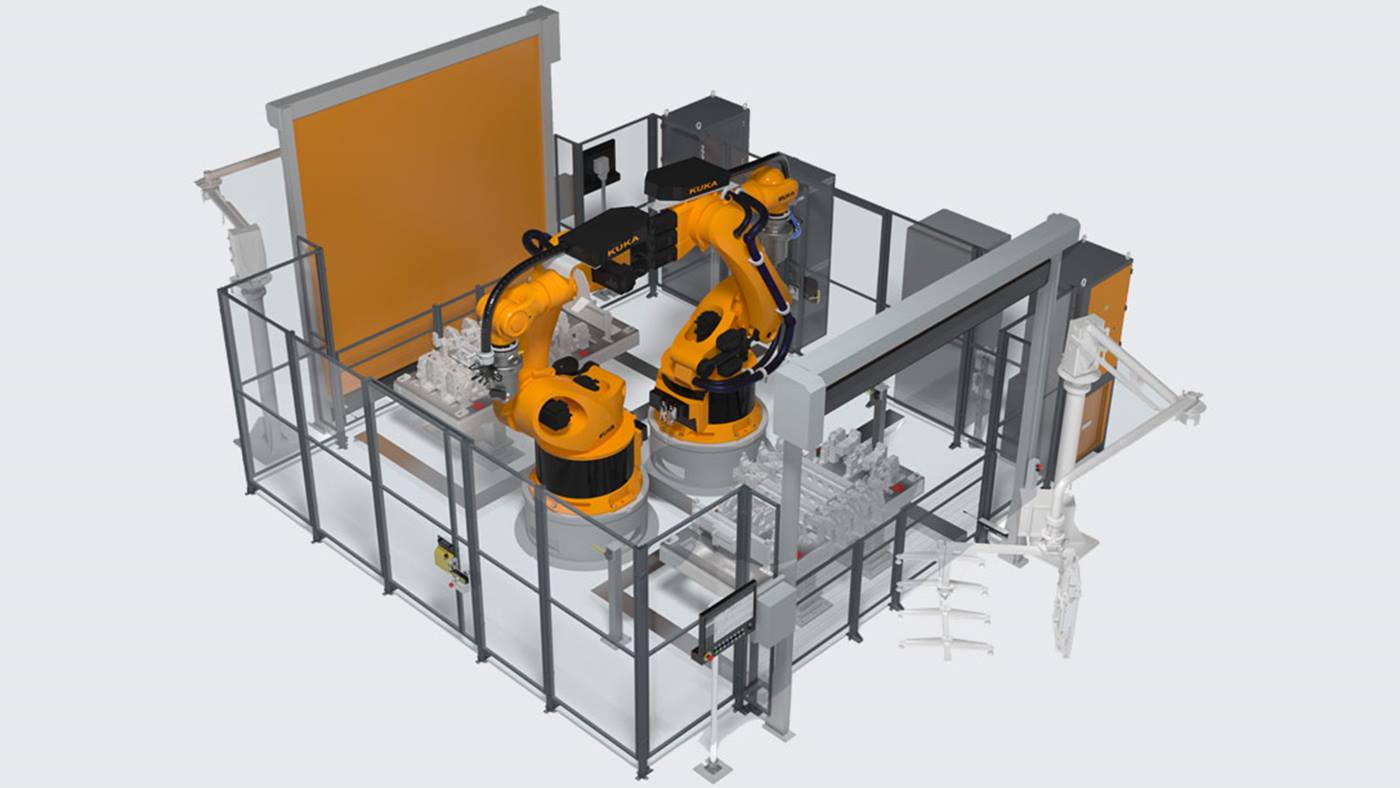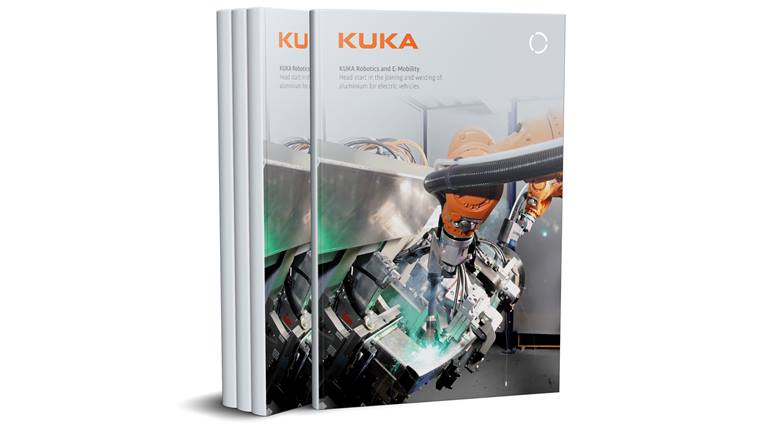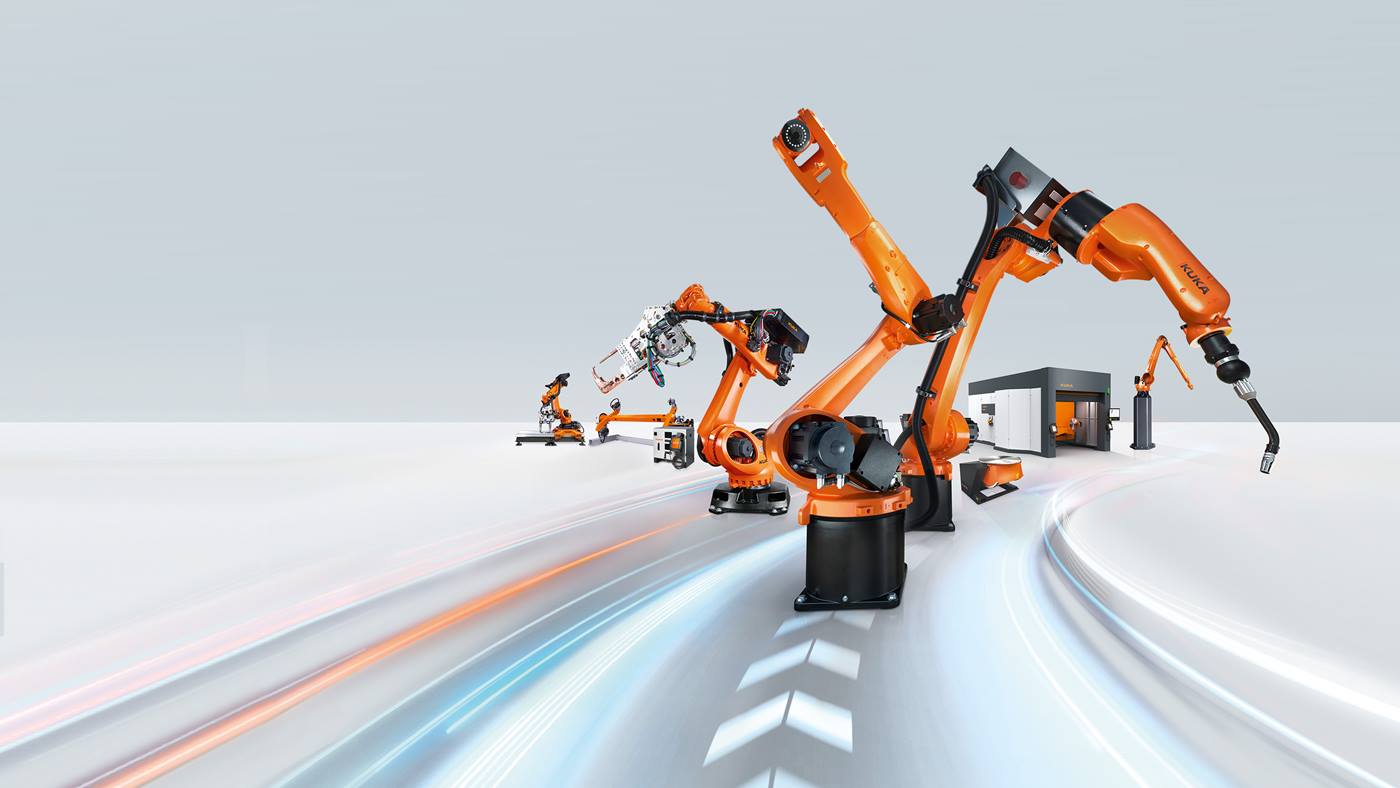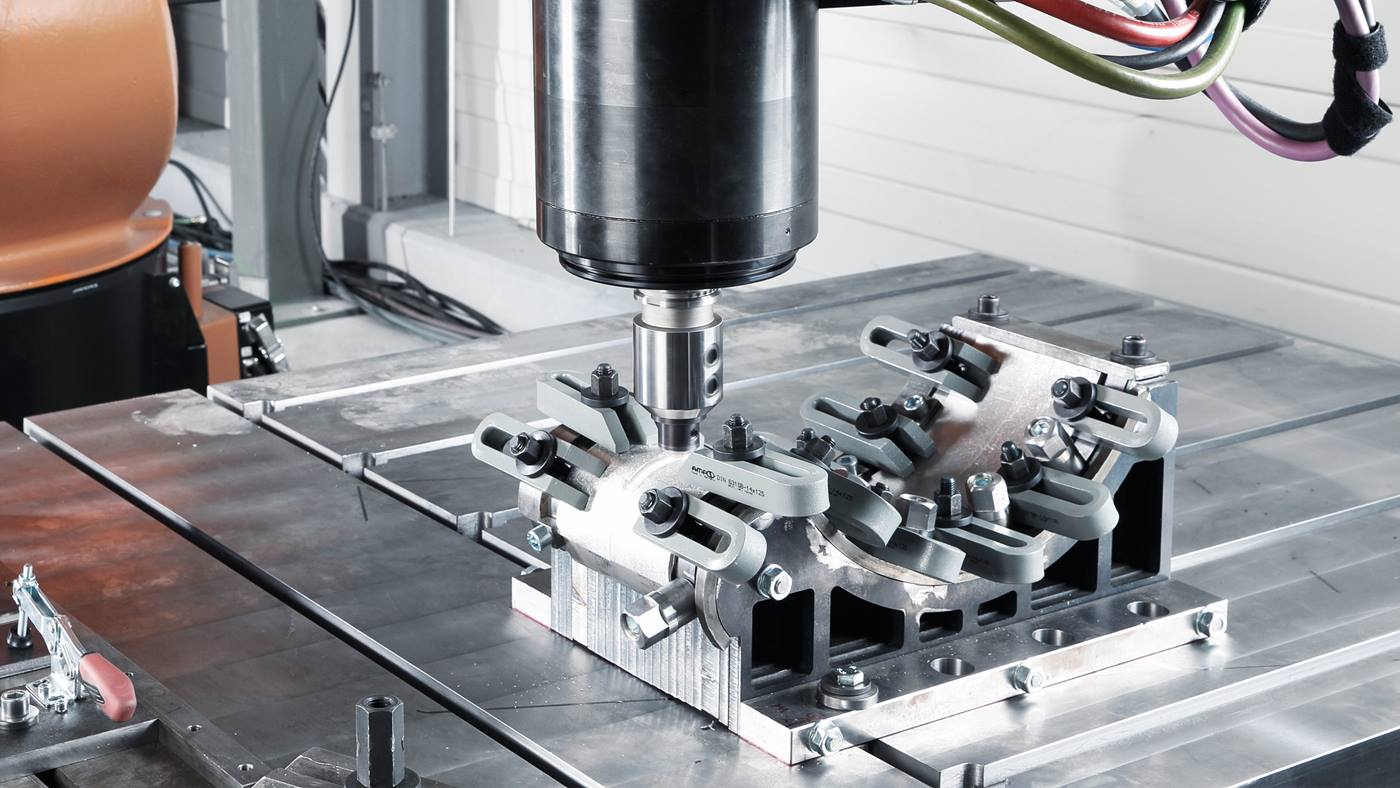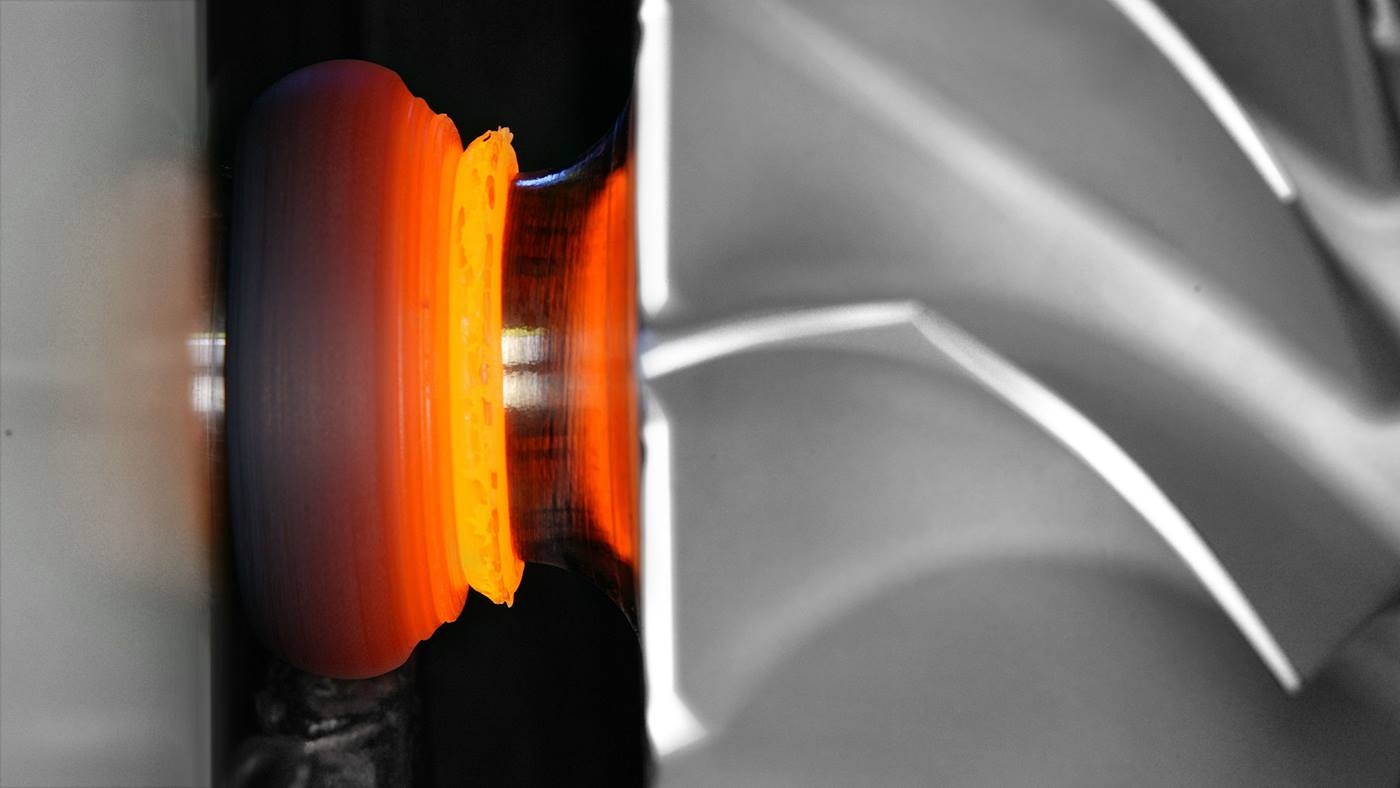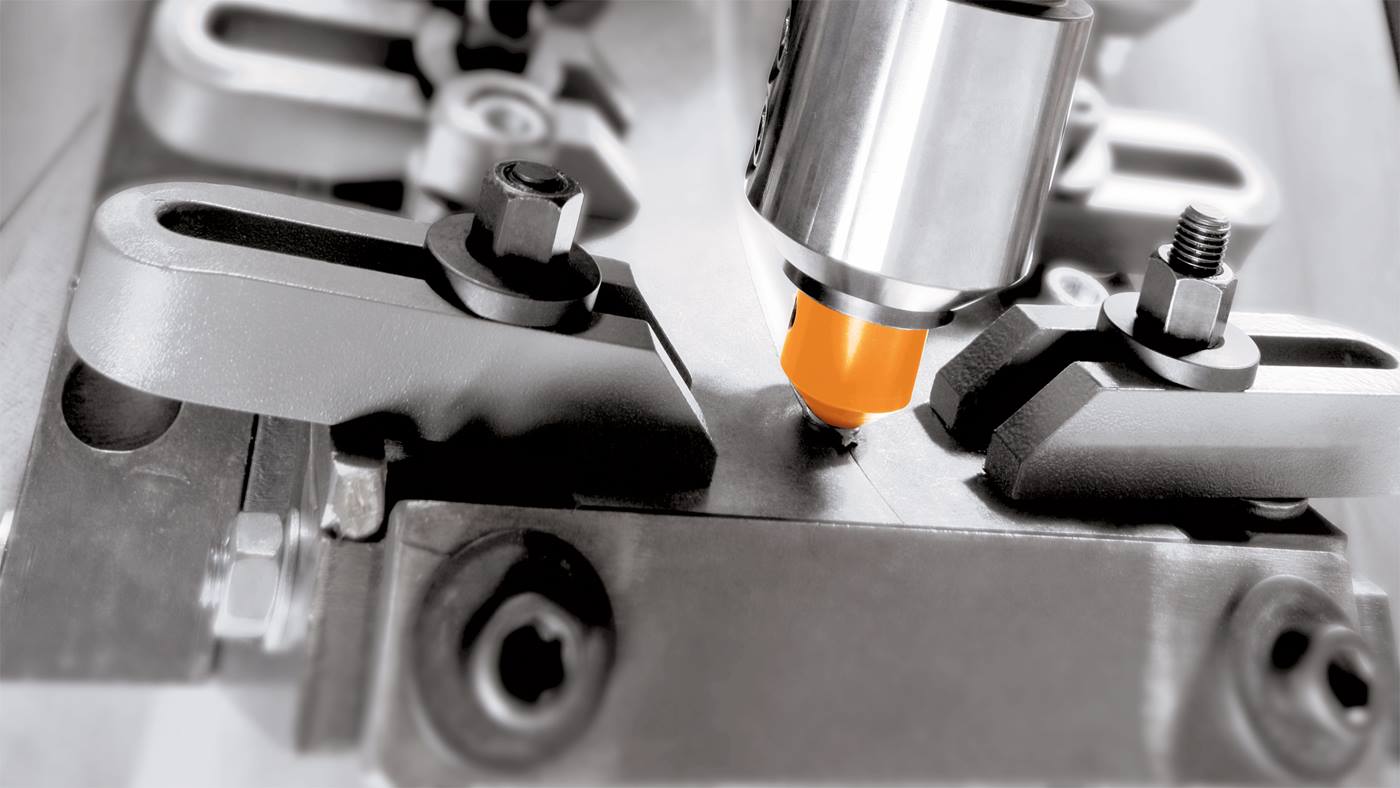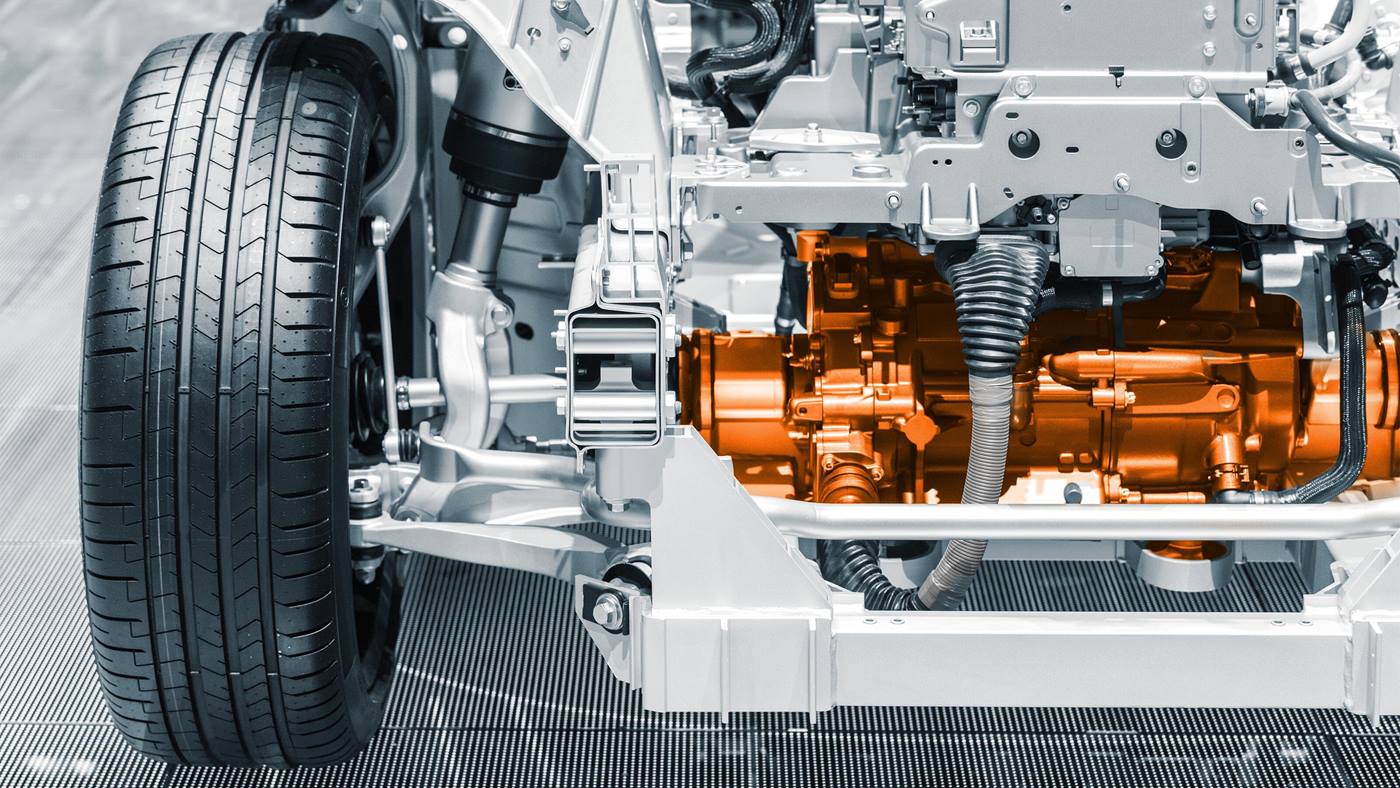Friction stir welding (FSW): the process
Friction stir welding is a process in which a rotating pin is traversed along the contact surfaces between the workpieces. The frictional heat plasticizes the material, which is welded together.
The FSW process is particularly suitable for joining non-ferrous metals with a low melting temperature and for mixed-material joints. Even materials that are difficult to weld or dissimilar materials such as aluminium with magnesium, copper or steel can be friction stir welded.
Friction stir welding offers a number of advantages over conventional arc welding processes.
FSW ensures top weld quality - No welding defects such as pores or cracks
- Joining of a wide variety of materials possible
- Comparatively low heat input
- High seam strength with minimal welding distortion
FSW guarantees cost-effectiveness - Economical joining of complex 3D geometries
- Material savings through component optimization
- No consumables such as shielding gas or filler wire
FSW is labelled as "green technology" - Environmentally friendly thanks to low energy consumption
- No fume extraction or anti-glare measures required
Nhôm đóng một vai trò quan trọng trong phương tiện di chuyển bằng điện vì sự kết hợp lý tưởng giữa nhẹ và sức mạnh. Đối với quá trình hàn và nối, nhôm đặt ra yêu cầu cao về các công nghệ được ứng dụng. Với bí quyết quy trình sâu rộng và các sản phẩm phù hợp, KUKA chuẩn bị cho bạn sự chuyển đổi công nghệ theo hướng phương tiện di chuyển bằng điện. Sử dụng hộp pin làm ví dụ, có thể thấy rõ cách rô-bốt cho phép sản xuất các thành phần nhôm ở mức chất lượng cao nhất.
Đọc tất cả những gì về hàn nhôm trong phương tiện di chuyển bằng điện.
Tải sách trắng

